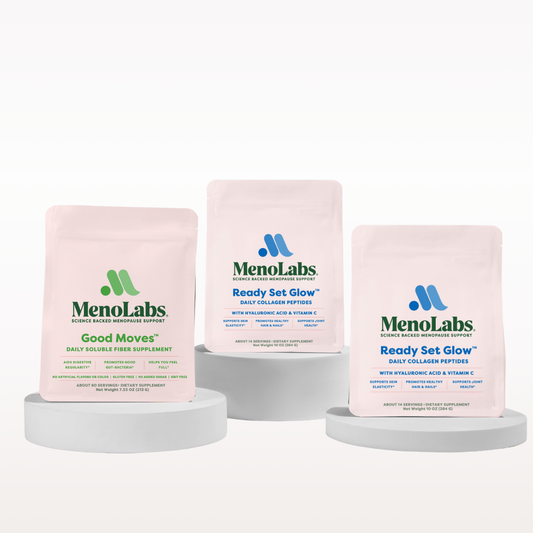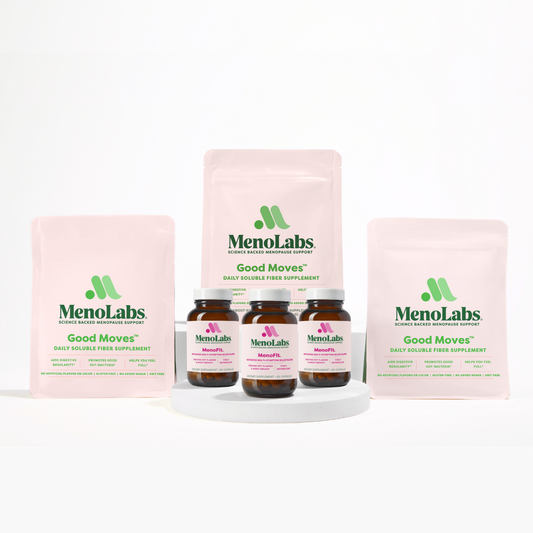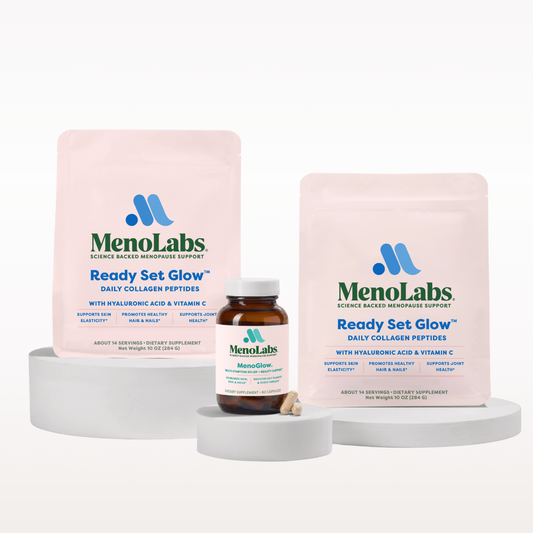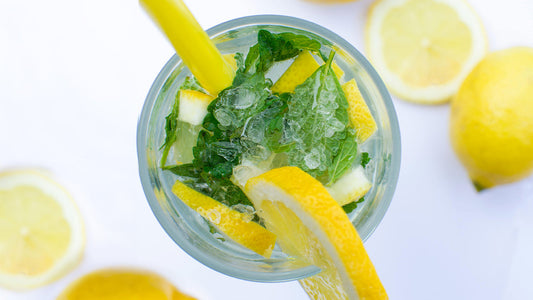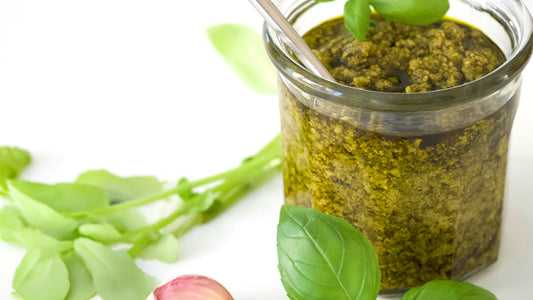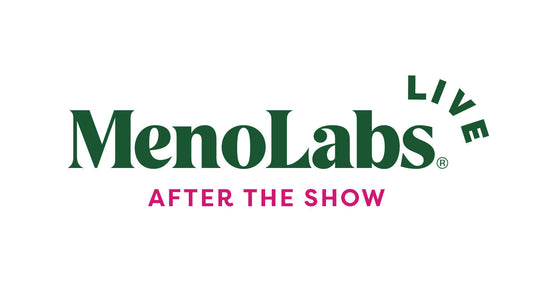The holidays are a special time of year, where we all get to enjoy the decorations, the films, the music, and of course, the food! But for women going through the menopausal transition, some holiday foods can help maintain menopausal health and some can make menopausal symptoms worse.
What Are Menopause Symptom Triggers?
Menopausal symptom triggers are things that influence when and how menopause symptoms occur. Menopause symptom triggers can include things like specific foods, external temperatures, friction from clothing, stress hormone levels, and more. Not all menopause symptom triggers are external and sometimes certain illnesses can exacerbate the frequency or intensity of certain menopausal symptoms.
The most common menopausal symptom triggers are compounds that come from certain types of foods. Food is one of the easier triggers to control and avoid, which is why diet is such an integral part of menopausal health. Since the holidays are just around the corner, it’s important to understand how to avoid some of those food symptom triggers at the holiday dinner table.
Foods to Eat
Winter Fruits
Winter fruits are a great source of fiber, minerals, vitamins, natural sugars, and most importantly, antioxidants. The three most commonly used fruits in holiday recipes — cranberries, pears, and oranges — can help improve and maintain your overall health, not just your menopausal health.
Cranberries are rich in antioxidants, which can help reduce the risk of heart disease, help the immune system remain strong, and keep brain cells healthy. Pears have up to six grams of soluble dietary fibers that can help your body better absorb nutrients by slowing down digestion. This can also help keep you fuller for longer and prevent you from overeating. Oranges are high in B-vitamins and potassium, both of which can help improve blood pressure and ensure that the body produces enough red blood cells to maintain energy and circulation.
So if you’re looking to keep your immune health high, look for recipes that incorporate these fruits!
Roasted Vegetables
Vegetables are full of necessary dietary fibers that can help feed your gut. Within every human stomach is an ecosystem of bacteria. These bacteria help our bodies regulate themselves by sending and receiving information that helps direct the various systems our bodies need to maintain in order to stay healthy. This ecosystem is called the gut microbiome and the bacteria that populate it need to eat just as much as we do. The food that they need is fiber, and vegetables are packed full of them!
What popular holiday vegetables can give you the best sources of fiber? Start with Brussel sprouts! Did you know that roasted brussels sprouts can provide you with up to 3.5 grams of fiber per cup? They’re also rich in Vitamin K, which helps maintain a healthy heart and can reduce the risk of suffering from heart attacks and strokes. Roasted carrots can also provide you with the fiber your gut microbiome needs and are great sources of Vitamin B6, which can help you maintain energy levels and a steady metabolism.
Turkey
Turkey isn’t just delicious, it’s also got some great health benefits! Turkey is a great source of protein, which is vital to help women maintain muscle mass during the menopausal transition. It’s a wonderful source of B vitamins, which can help maintain energy levels, aid the body in producing red blood cells, and protect brain health.
And turkey is high in tryptophan, which can help you fall asleep! Tryptophan is an amino acid that helps stimulate the production of sleep hormones, particularly serotonin. By consuming foods high in tryptophan, your brain increases levels of sleep hormones like serotonin and GABA. These hormones can help lower your heart rate, relax your muscles, reduce neural activity, and help your body fall into a deeper sleep more effectively.
Nuts
Nuts and nutty flavors dominate the holiday menus and we’re all for it! Nuts are a great source of a variety of essential nutrients. Pecans, walnuts, pistachios, almonds, you name it, every type of nut can provide you with close to a dozen different types of vitamins and minerals. Some of these nutrients include Vitamin E, magnesium, copper, zinc, manganese, and magnesium, just to name a few.
But the health benefits don’t just stop at the volume of vitamins and minerals that nuts offer. Nuts can also help maintain your immune system through a multitude of antioxidants. Some studies have shown that walnuts have a higher capacity to fight free radicals and oxidative stress than fish. Nuts can also help lower LDL cholesterol, which can help lower the risk of developing diabetes and certain heart conditions. Nuts also have some great anti-inflammatory properties. They can help reduce inflammation in organ tissues, muscles, and potentially even joints! Remember, a little goes a long way! Nuts are packed with healthy fats and calories, so enjoying them in moderation is best.
Foods to Avoid
Potatoes
Although potatoes are as filling as they are delicious, they can trigger and exacerbate certain menopausal symptoms. Potatoes are high in starches and carbs that can raise blood sugar levels. Potatoes are high on the glycemic index, which means that they cause blood sugar and insulin levels to spike and then fall drastically.
This causes a variety of problems for women going through the menopausal transition. Drastic rises and falls in blood sugar can intensify mood swings. One moment, a woman might feel energized and satisfied, the next moment she may feel fatigued and easily irritated because the rise and falls in blood sugar have an effect on mood.
So rather than eat the baked potato with all the fixings, maybe stick to a small number of roast potatoes (and make sure to eat more of those brussels sprouts).
Chocolate
Now, we’re not talking about a tiny bit of dark chocolate. We’re talking about the incredibly sugary, milk and white chocolate desserts that represent 3/4 of your day’s calories in one slice. Refined sugars, higher trans fat percentages, and so on, can have an immense impact on your menopausal and overall health.
So instead of loading on the chocolate and sugary sweets during the holidays, be sparing with your indulgence and look for richer alternatives.
Alcohol
Whether it’s your favorite mulled wine recipe or that bottle of champagne you’ve been saving up for, everyone should have the opportunity to celebrate the holiday season with a little cheer. But it’s important to set some limits.
Alcohol is a vasodilator, meaning it causes the blood vessels to widen. While this may be good for circulation, it can trigger a hot flash. When blood surges through the blood vessels, it increases heart rate. When the brain registers the rise in the heart rate, it senses the body is preparing to overheat. The brain then sends signals to the body to release sweat on the skin to try to cool it down.
If you do plan on drinking during the holidays, try to keep it to 2 glasses or less for the night. Moderate consumption of alcohol is your best bet to lowering your risk of hot flashes by the fireplace.
Eggnog & High Fat Dairy Products
Eggnog. That delicious, creamy, decadent holiday beverage is a staple in many households, and will be an eternal classic. However, as tasty as it is, it can have more of an impact on women’s health as they get older and go through all the stages of menopause. High-fat dairy products, especially ones that are loaded with sugar and alcohol, can trigger menopause symptoms and contribute to other health concerns.
So instead of drinking a solid quart of that eggnog in one sitting, have a small glass or two over the course of an evening, and make sure to drink plenty of water in the meantime!
Stay Healthy This Holiday
Staying healthy during the holidays is not impossible. It all comes down to paying attention to what you eat, how food makes you feel, and knowing when to stop yourself from overeating. Listen to your body. It will always tell you what it needs.
Our experts continually monitor the health and wellness space, and we update our articles when new information becomes available.
Revised Version October 23, 2025
Related Products
Blend Besties Bundle
Fresh Start Bundle
4.7 / 5.0
(553) 553 total reviews







